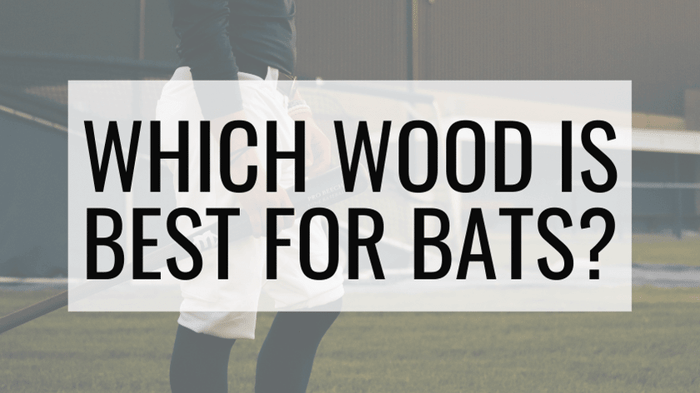
Beech, Maple, Birch, or Ash? Which Wood is Best for Baseball Bats?
The answer to which type of wood bat is best has evolved and changed over time. For the earliest part of baseball bat history, Hickory was the original wood of choice. For most of the 1900s Ash bats dominated the game and was the wood used by Babe Ruth, Joe DiMaggio, Ted Williams, Hank Aaron, Willie Mays and so many of the all-time greats. In the late 1990s, Barry Bonds brought Maple to the front of the line. With every home run he hit, Maple bats began to take off and have been the wood of choice in modern baseball. Over the past 10 years, Birch has begun to creep in and is now the second most popular wood used in baseball. Beech is considered by some to be next in line to make a jump, but only time will tell.
The benefits of each wood have been passed around from player to player. Rather than list out the pros and cons of each wood based on word of mouth, we're going to look at the scientific data behind each wood species and determine what the science says the best wood is for baseball bats.
There are four characteristics of wood that are relevant for use in a baseball bat; Density, Dent Resistance, Bending Strength, and Stiffness.

All factors being equal, a denser bat will drive the ball a greater distance. Measured as weight of wood per unit of volume. Wood is weighed at a 12% moisture content. European Beech is only 5 kg/m3 than Maple - but that could be the difference between a deep fly out and one that clears the fences. If a wood is too dense (Hickory 735 kg/m3), it limits the type of bat turned - too thick of a barrel means the handle is thinner which results in bats that break more. For this reason, European Beech and Maple offer the best wood on the basis of density. Density is also described as Average Dried Weight.

This number determines how well a wood will withstand dents, dings, and wear - as well as predicting the difficulty of penetrating the wood. Measured as the amount of newtons required to imbed a .444" diameter steel ball into the wood to half the ball's diameter. European Beech and Maple score best in keeping surface dents to a minimum. Beech, Maple, and Birch are all diffuse porous (closed-grain) woods, which means bats made of these wood species will compress and get hotter with use. Dent Resistance is more commonly known as the Janka Hardness.

A measure of the wood's strength before rupture. Basically how far can you bend the wood before you will see a break occur. This is used to determine a wood species' overall strength. Higher MOR numbers means stronger wood. In this category Birch scores highest, followed by European Beech. Bending Strength is described as Modulus of Rupture.

Stiffness or elasticity or deflection measures exactly what it sounds like - how much can you bend the wood? This is such a big factor in baseball bats and is never discussed. This could be the reason Birch has seen such high growth. As players seek faster swing speed, you need a stiffer bat that doesn't drag behind your hands. This could be the single factor that results in European Beech becoming the next wood of choice. On the basis of wood stiffness, European Beech is the best wood - followed by Birch. The scientific term of Stiffness is Modulus of Elasticity.
Which Type of Wood Bat is Best?
Based on the four relevant characteristics of wood species for baseball bats, it is clear that European Beech offers the best combination of all the woods used. Beech offers the density benefits of maple and the stiffness benefits of birch. Don't be surprised to see Beech bats take off over the next 10 years as more bat companies start seeing the overwhelming data of it compared to Maple, Birch, and Ash.
If you're looking for some places to try out European Beech bats - Mine Baseball, YAYA Baseball, Ruth Baseball, and M^Powered all offer bats made of beech.
Mine Baseball offers the most comprehensive selection of European Beech bats in the USA. The most popular model turns sold by Mine Baseball are:
Balanced

$235.00
The Balanced bat is designed with all players in mind. Inspired by the classic 110 turn, this bat comes with a flared knob and taper which makes the bat feel lighter than most turns due to its long, slow taper… read more
Balanced EL

$235.00
The Balanced End Loaded bat is designed for the batter who loves a more traditional knob. Inspired by the popular 271 turn, this bat comes with a standard knob and sharp taper from barrel to handle - you'll get a… read more
Youth Wood Bats

$185.00
The Youth -5 bat is designed with youth players between the ages of 12-15 who aren't ready for a -3 wood bat but still want to take their game up a notch. Coaches all over the country are preaching the… read more



















